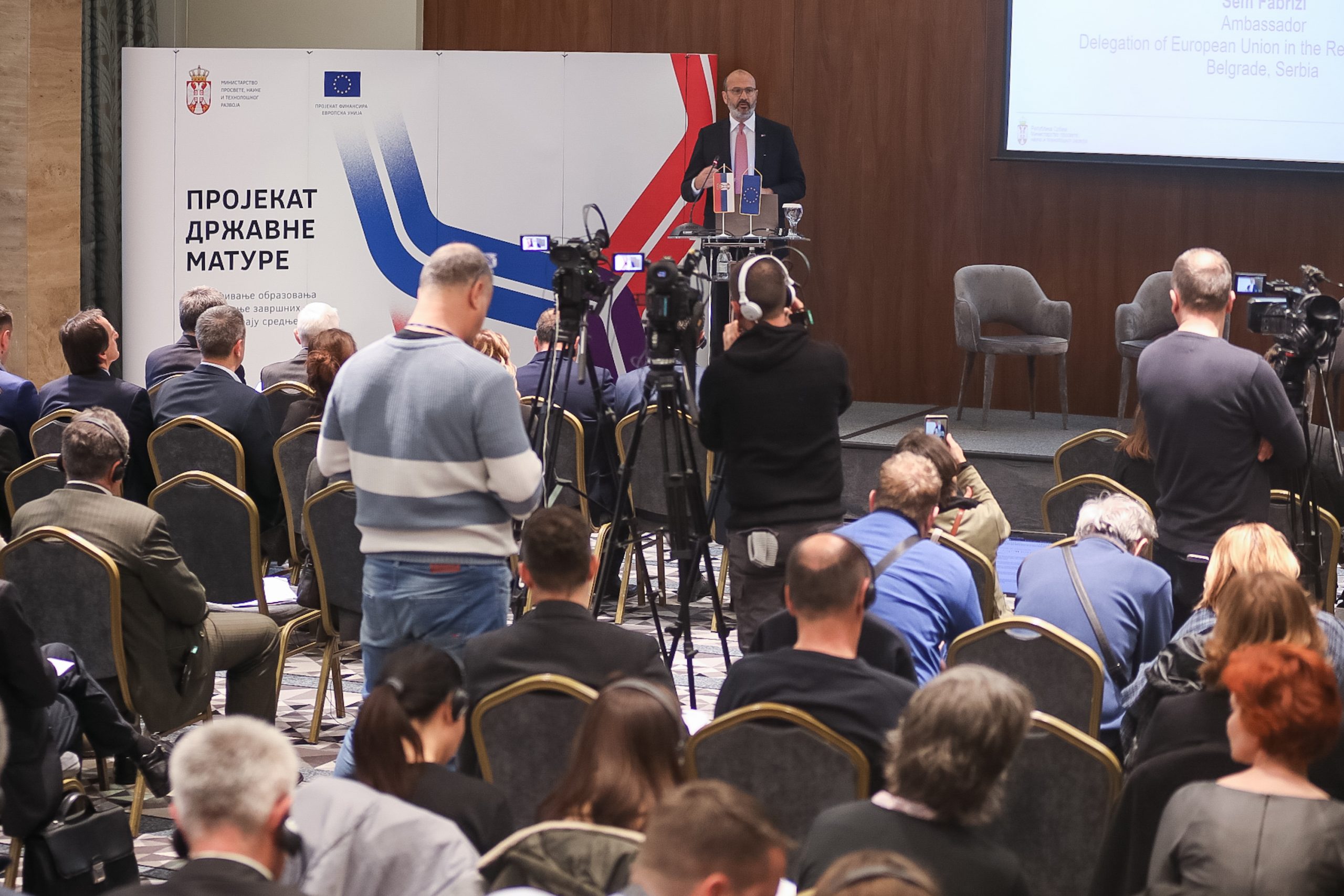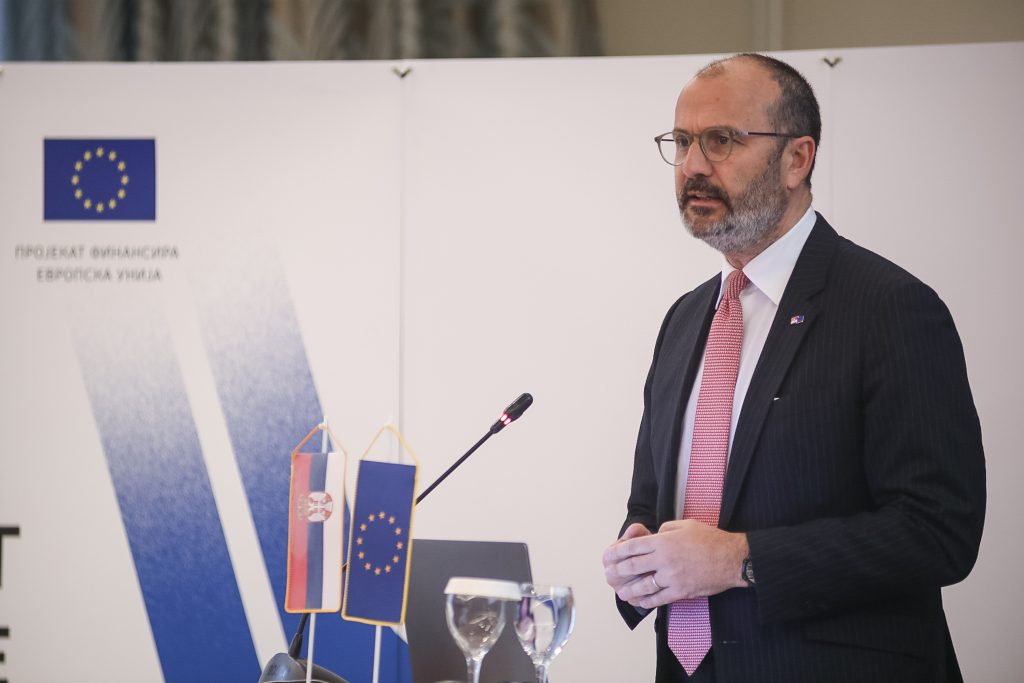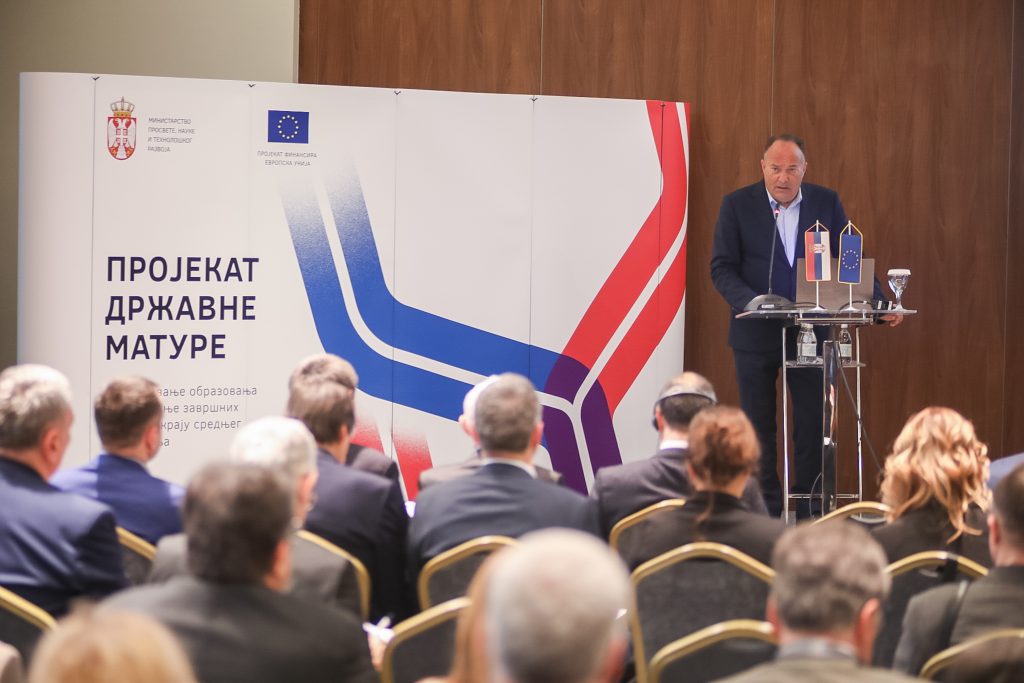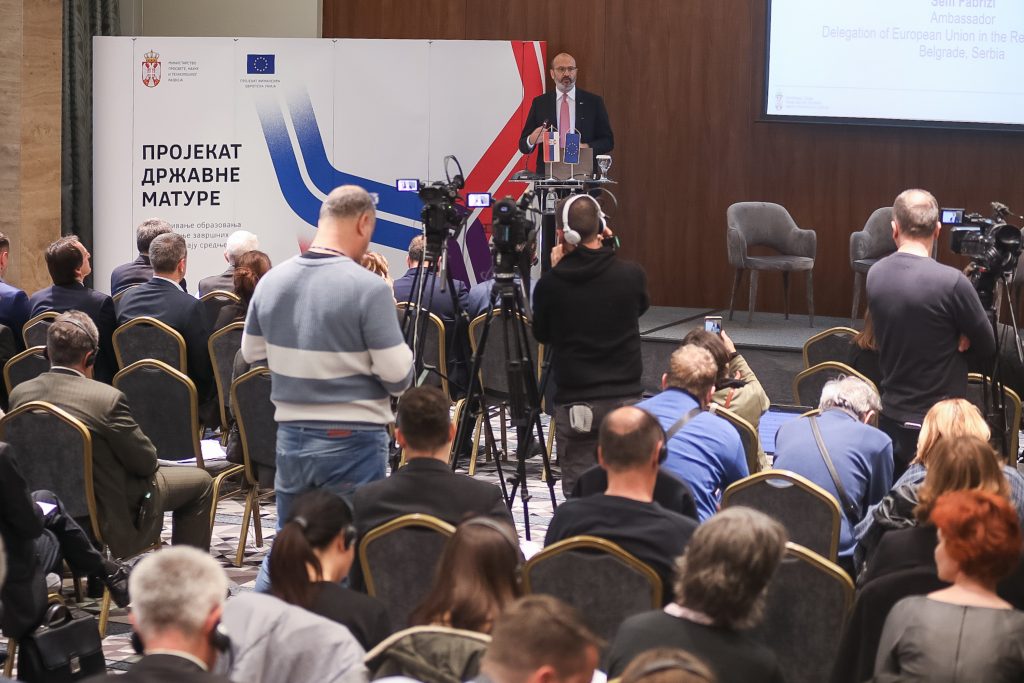With the Workshop “Sharing International Experiences” at the Hotel “Metropol” in Belgrade, the State Matura Project continues preparations for the first state matriculation pilot trial, which is scheduled to be completed in May this year.
According to the decision of the Ministry, all high school students in Serbia will take the state matura examination from June 2022 (the final exam is introduced in the system as early as 2021). To prepare students and teachers to test the functioning of the whole system, two pilot tests and one graduation test are planned before the “real” graduation. In this way, higher education institutions will have the opportunity to take a closer look at the matriculation exam and prepare for the possibility of the state matura exam to replace the entrance exams for admission to the faculties.
Ambassador Sem Fabrizi, Head of the EU Delegation to Serbia, reminded that the European Commission was at the forefront of the state graduation project and that the goal was to help Serbia become part of the wider education community.
He stressed that the EU Delegation is working with the Ministry of Education to fundamentally change Serbia’s education system.
“In the last three years, Serbia has, with our help, developed a thorough reform process. The state graduation project is a very important moment for the education system. It will make life easier for students, it is a matter of equality and the provision of equal conditions,” Fabrizi concluded.
Education Minister Mladen Sarcevic said it was important that the state graduation project was launched and that the projected time of five years, despite criticism that working too quickly, was a “real” good time.
“It is a standpoint that says that the system can enter the quality of the moment when it introduces an external model of knowledge assessment and learning outcomes. It is also an assessment of the high school system, and it depends on not only that we will expose young people to the admissions and final exams, and doing them formally. Through this project, Serbia is trying to change its education strategy, “Sarcevic said.
Over the past year, the Project has completed a series of preparatory activities for the State Matura exam – 52 task forces and manuals have been created, training for tests has been completed and more than 1000 tasks have been prepared so far, from these days being chosen for the first piloting tasks.
Over the past year, the Project has completed a series of preparatory activities for the State Matura exam – 52 task forces and manuals have been created, training for tests has been completed and more than 1000 tasks have been prepared so far, from these days being chosen for the first piloting tasks.
Trainings for state graduation schools begin in March – first for 104 schools where the first piloting will be conducted and then for all others. The focus of the first piloting, in May 2020, will be the principles and procedures for conducting the exam and checking the quality and purpose of the exam tasks. In parallel with these activities, activities on preparing higher education for the beginning of using the results of graduation instead of the entrance exam are realized.
As part of the preparatory activities, the Project also organized a workshop for the exchange of international experiences, where experts from five EU countries: Croatia, Slovenia, Estonia, Poland, and the Czech Republic spoke about the challenges they encountered during the introduction of the national graduation. Participants of the meeting, representatives of Serbian educational institutions, represent the systems of national graduation of their countries, with special reference to the tasks and responsibilities of individual institutions, methodology of preparation of exam materials, method of assessment, conditions of enrollment in higher education institutions, budget and data management.
Two panel discussions within the workshop are devoted to the methodology of state graduation and enrollment in higher education. Different education systems have encountered similar challenges – distrust and resistance in introducing final exams, but also with improved quality of education several years after the introduction of the national high school diploma, a goal that Serbia is striving for through this serious change in its education system.
The state graduation project, for which the European Union has donated € 3.7 million, has been supporting the Ministry of Education, Science and Technological Development for a year now in preparing, testing and conducting final exams in secondary education.
The project, for which the European Union has donated € 3.7 million, provides technical support to the Ministry of Education, Science and Technological Development to prepare, test and conduct a national matriculation at the end of secondary education. It is supported by EU funds, which is the largest partner of the Republic of Serbia in modernizing the education system. Since 2003, the EU has invested more than € 100 million in the education sector – from upgrading pre-school education through reform of vocational secondary education, adult education, renovation and equipping of higher education institutions, state matriculation reform to Roma inclusion.







